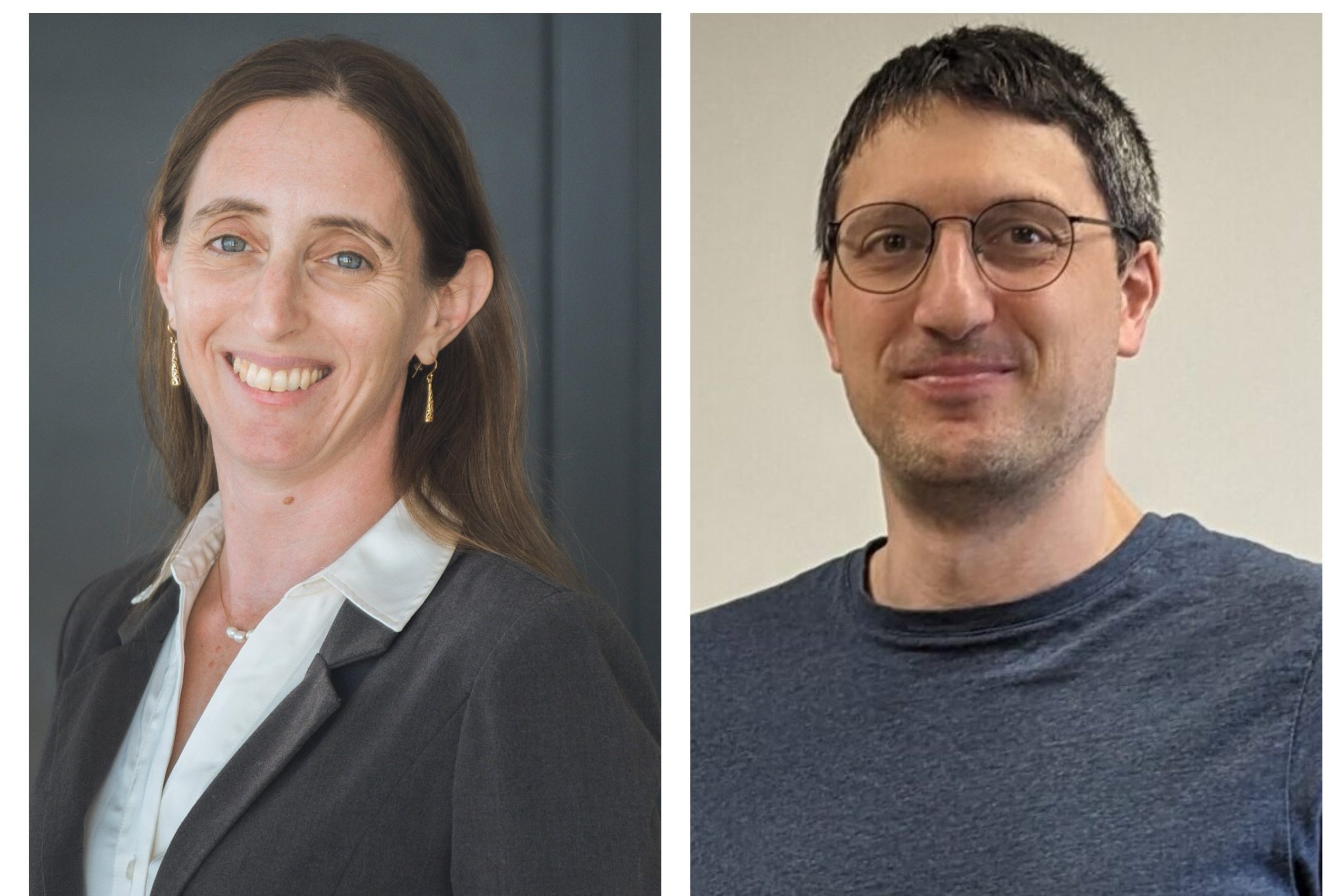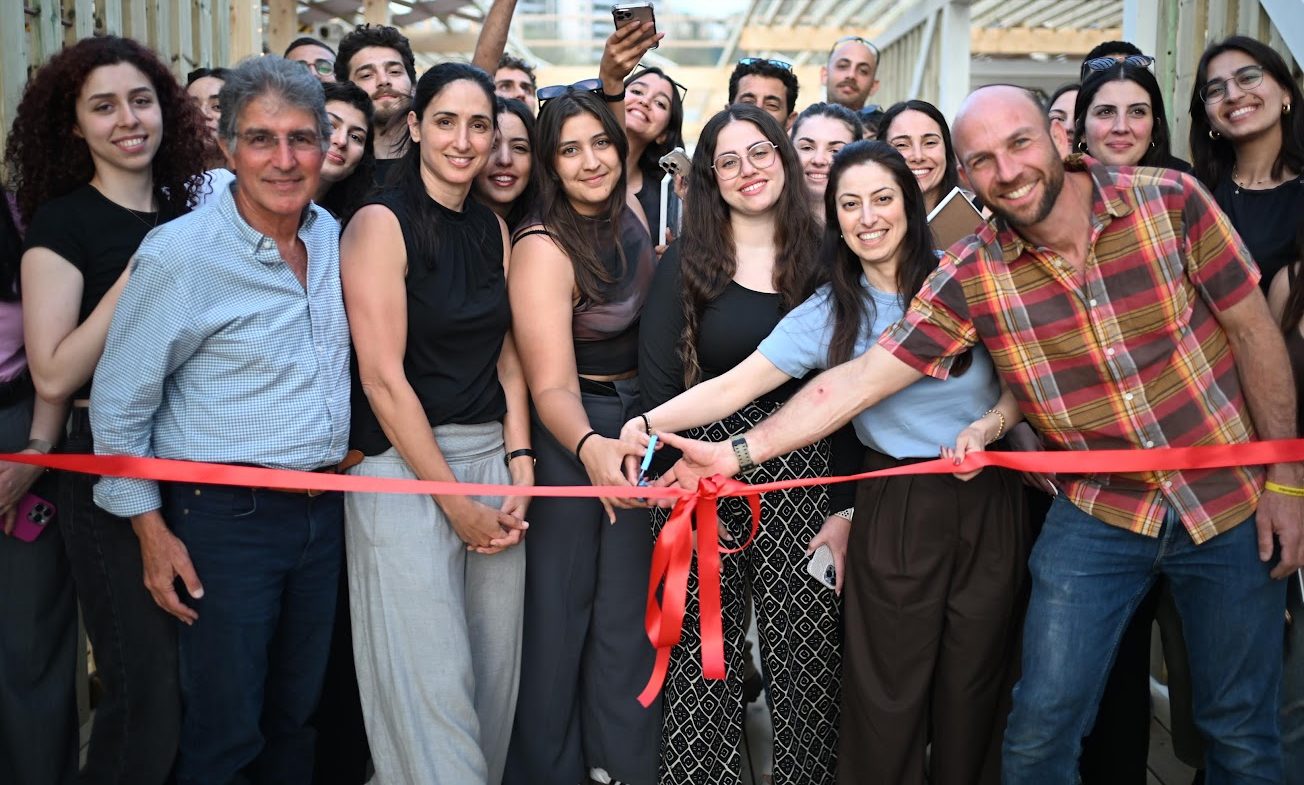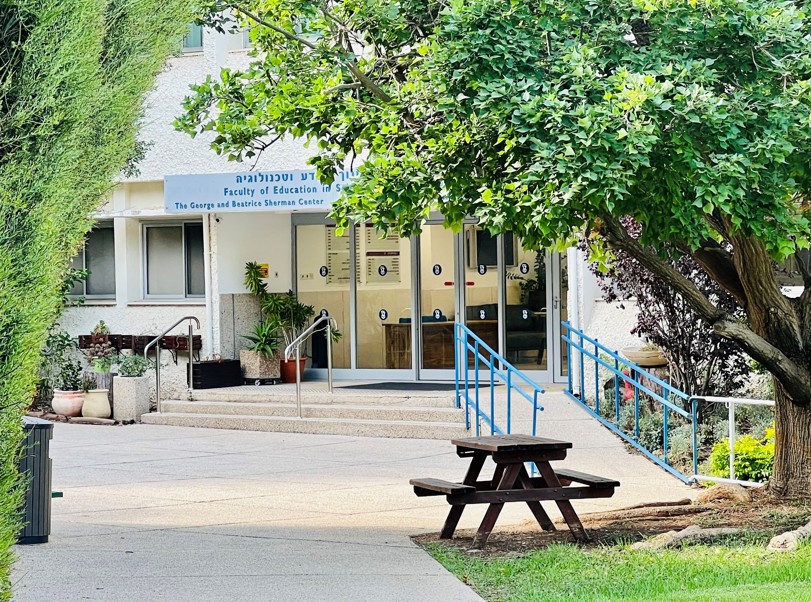Doctors of the Future
Technion Confers MD Degrees on 217 Graduates
The Technion – Israel Institute of Technology awarded Doctor of Medicine (MD) degrees to 217 graduates in ceremonies attended by the dean of the Faculty of Medicine, Prof. Ami Aronheim, and guest of honor Dr. Vered Drenger Rappaport.
For the first time, the graduation was held over the span of two days. Of the 217 new doctors, 60% are women. Thirty-six graduated with honors, two with high distinction, and 19 completed the demanding MD/Ph.D. track, which combines medical studies with research.
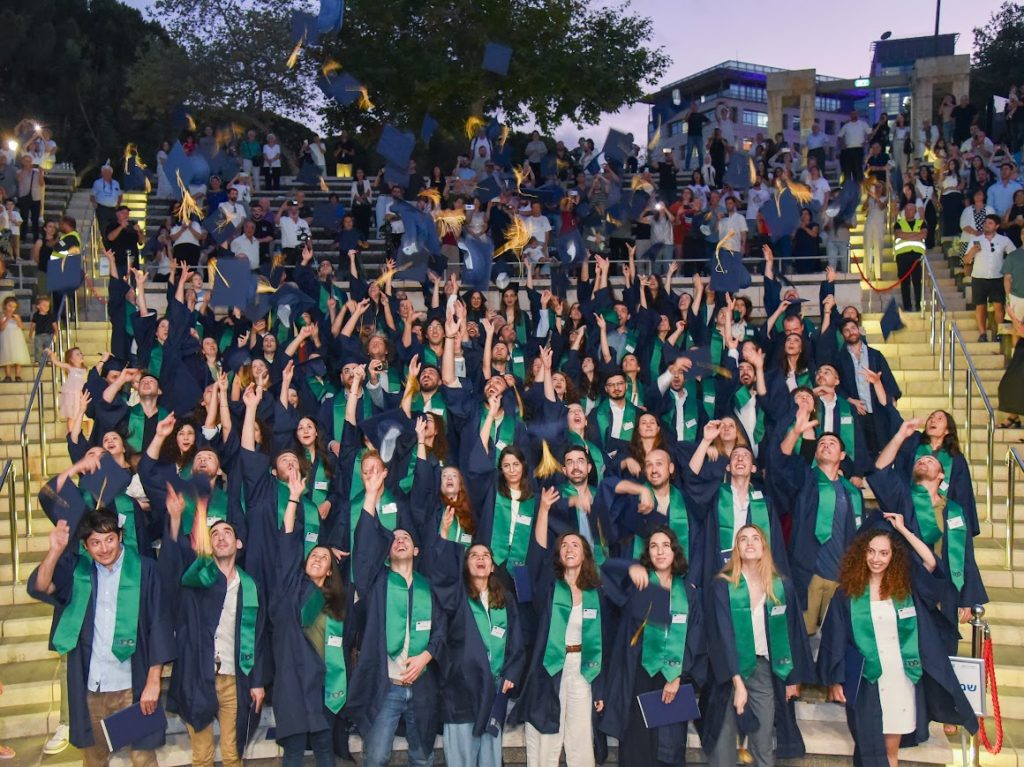
Technion President Prof. Uri Sivan emphasized the importance of the medical profession in these challenging times. He praised doctors and medical teams as “rare sparks of light who dedicate themselves to healing and repair in times of routine, pandemic, and war.” He remembered Captain Alon Safrai z”l, who was due to start his fourth year of medical studies but was killed in October 2024 during battles in southern Lebanon. “You are entering the professional world during a difficult time,” Prof. Sivan said. “A time when all of us need healing and rehabilitation. Few are given such a clear opportunity to be part of that work. Remember – you are the sparks of light. Stay strong. Go forth and do good.”
Dr. Drenger Rappaport said, “My mother Ruth strongly believed in the power of women to lead. If she were here today, she would commend and praise you, the female graduates, and don’t worry, the men too. Medicine is being transformed in every field by artificial intelligence, but in my work with elderly patients, I’ve seen firsthand that we still need a supportive, patient human touch in meeting with patients and families. Take with you your moral, ethical, and professional commitments – along with compassion, tolerance, human dignity, transparency, and the principle of doing no harm. Ethical conduct is the foundation of your work as doctors. I congratulate you on behalf of my family – and I know my parents, Ruth and Baruch, would have been proud of you. May one of you one day be awarded the Nobel Prize in Medicine.” The Technion’s Rappaport Faculty of Medicine is named after Ruth and Bruce (Baruch) Rappaport.
Prof. Ami Aronheim, dean of the Rappaport Faculty of Medicine, said, “In recent years, extremism and polarization have grown in Israeli society. The Technion Faculty of Medicine, the Technion community, and our hospitals are a model for a different kind of society – one based on mutual respect, tolerance of different opinions, rejection of violence, and dialogue. A society in which one’s origin, gender, or religion does not grant privileges. We all share one mission: to heal and care for every patient.
As medicine becomes more sophisticated and technological, your patients will still seek eye contact, compassion, a smile, words of encouragement, and a warm touch” he added. “They’ll want to see truth in your eyes—and they’ll ask that you always leave room for hope, even after a 26-hour shift.”
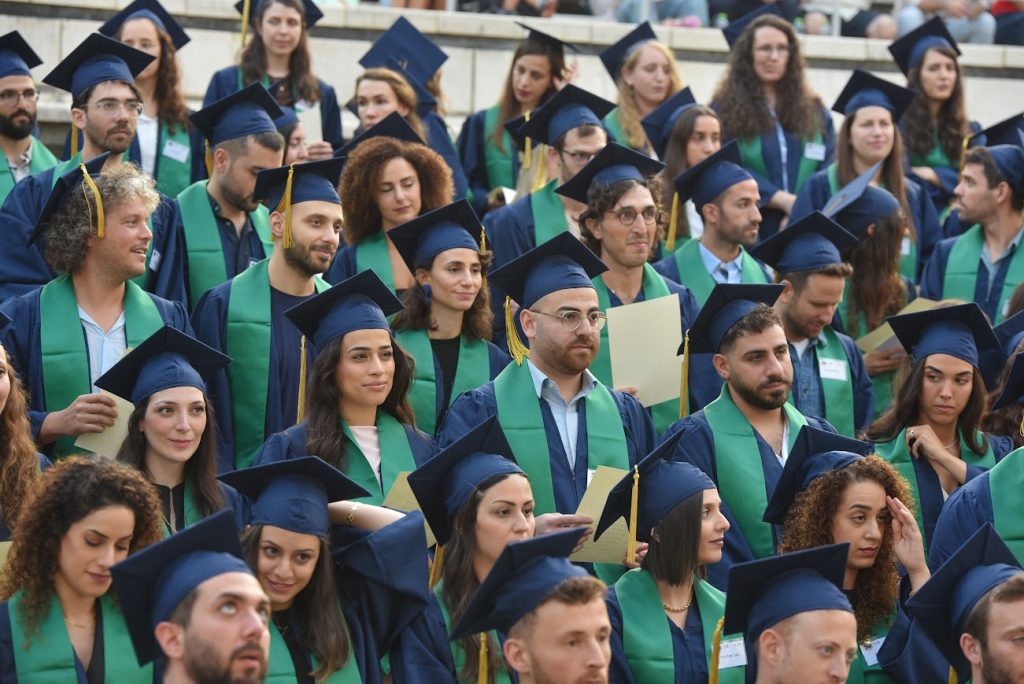
Speaking on behalf of the graduates, Dr. Binat Weisman Eilat said, “During our studies, both the world and our country experienced major upheavals. A global pandemic sent us to Zoom classrooms, microbiology labs through screens, and anatomy lessons from images. As COVID faded, new crises shook the country – culminating in Black Saturday, October 7. A long and painful war began, affecting all of us – studying under rocket sirens, dealing with grief and existential fear, serving in reserves, and managing homes while partners were at war. I am honored to be part of an amazing group of people who made it here today despite all the difficulties and impossible circumstances.”
Against All Odds
Choosing to study medicine is always a major decision – but for Dr. Yochi Morchay, it was especially complex. Raised in a Haredi (ultra-Orthodox) family in Bat Yam, she attended religious schools that don’t offer matriculation exams. Most girls from her background pursue certificate programs in teaching or accounting.
But Yochi, a bookworm from an early age, dreamed of becoming a doctor by the 10th grade. She began researching what was required: psychometric exams and either a matriculation certificate or a pre-academic preparatory program.
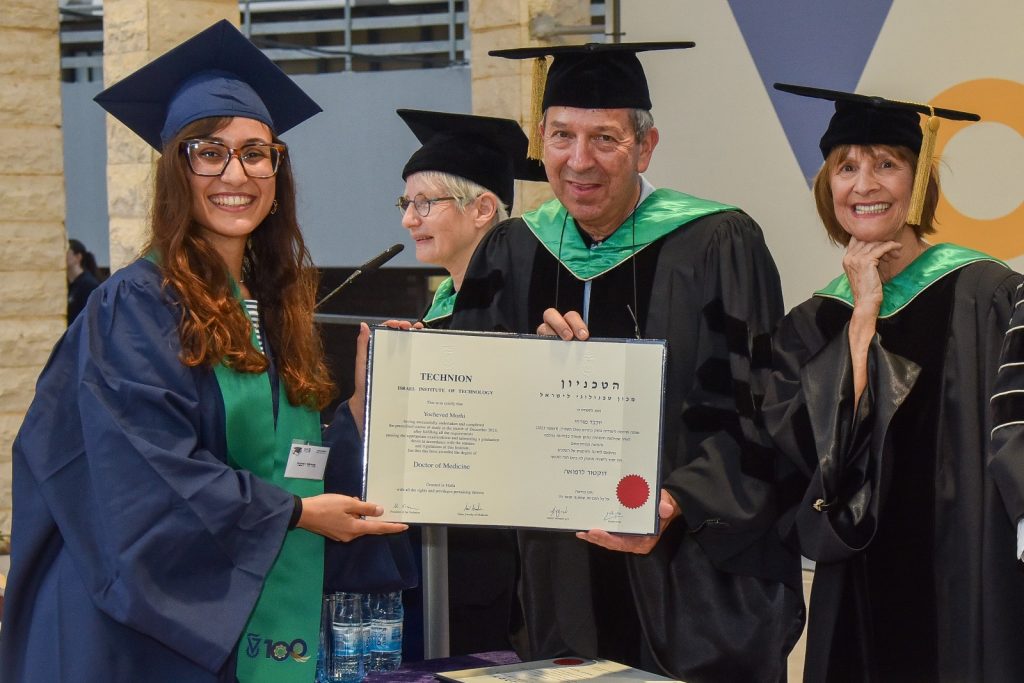
At 17, she approached the Hebrew University about joining their pre-academic program. The counselor told her she was too young – the program was for those 18 and up. But Yochi insisted and got special approval. “That was my first mixed-gender classroom – men and women together – and it was a huge culture shock.” She completed the preparatory program with knowledge equivalent to five units in math, physics, chemistry, and English.
At the same time, she completed the psychometric tests and was ready for academic studies – but the rules still posed a problem. At 18, she was too young to begin medical school. She considered doing national service with Magen David Adom, but her mother opposed mixed-gender service. The compromise: she’d pursue a bachelor’s degree first. Yochi enrolled in a dual degree in chemistry and biology at the Hebrew University.
After two years, she applied to the Rappaport Faculty of Medicine at the Technion – and was accepted. In her second year, she took the bold step of living off-campus with a male roommate, something unheard of in her community. She also adopted a guide dog. “These aren’t things accepted in Haredi society,” she said, “but they were my choices, and my family respected them – even when it was hard. For me, a dog is a partner, a source of stability. Through him, I met incredible people.”
She recently made the very major decision to get married. She and her future husband already live together and will marry in March 2026. He’s secular, and a Technion graduate in physics. They met through her former roommate and the gym. “My mom thought I’d have to choose – dog or husband – but I’m keeping both.”
Today Yochi works at Rambam and will soon start an orthopedic residency at Sheba Medical Center. Her interest in orthopedics, part of her attraction to surgery, intensified due to the war and the high number of patients needing rehabilitation. “Incredible things are being done there – and I want to be part of it,” she said.
She shows no sign of slowing down – something reflected in her spiritual outlook: “I didn’t leave religion – but I’m always looking for answers.”
Medicine or Engineering? Why Not Both.
Dr. Maya Hershko chose not to settle for the standard MD path. Instead, she pursued a dual degree in biomedical engineering and medicine (B.Sc. + MD). “I dreamed about both medicine and engineering, and it felt too early to choose. My dad is a physician and Technion faculty member, but there are engineers in the family, too. I got encouragement from both sides.”
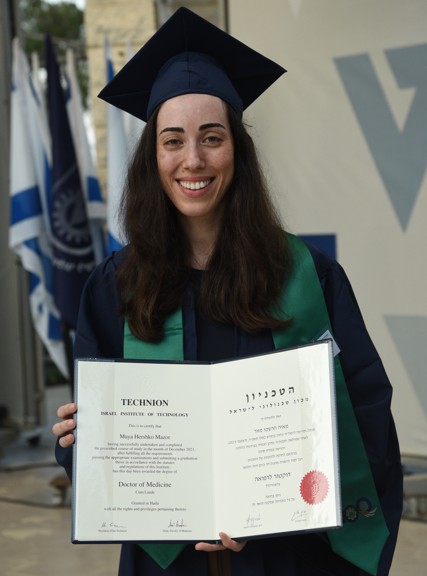
She ultimately loved both fields and the connection between them. “Now I know I want to be a doctor, not an engineer – but I believe technological knowledge is critical to advancing medicine.” This interdisciplinary approach echoes the founding vision of the Technion’s medical faculty in 1969: a belief that combining medicine and technology is essential to human health.
Maya is the daughter of Prof. Dan Hershko and granddaughter of Nobel laureate Distinguished Professor Avram Hershko – making her the third generation in the Faculty of Medicine. “There were expectations, but no pressure – and I’m very happy with my choice,” she said. “The dual track is well-structured, and I am now experiencing its benefits during my residency at Rambam. The broad and deep education we received is invaluable.”
When asked about the future, she replied that: “I believe in public medicine and its importance. I love surgery and my work at Rambam.”
Photo credit: Shai Elbaz and Avi Abutbul, Technion Spokesperson’s Office

